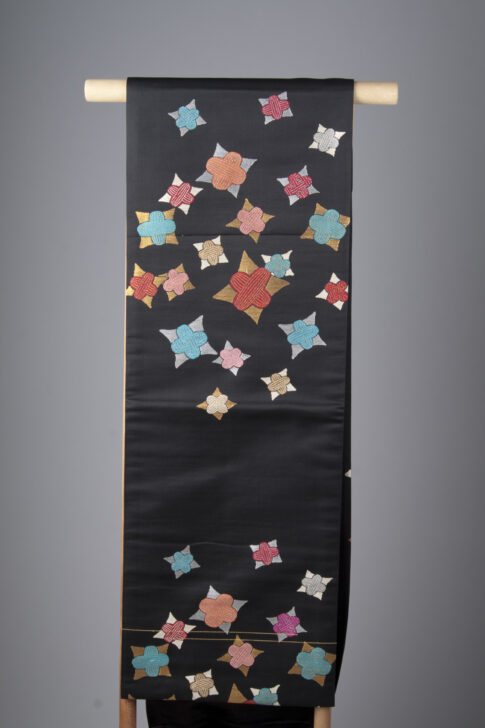Black Nagoya -style obi with woven design of decorative spools (itomaki)
Japanese

Description
Nagoya obi
Japan, Showa period (1926–1989)
1930s–50s
Black silk with gold- and silver-wrapped thread
Gift of Howard and Patricia Yamaguchi, 2005/1.343
Subject Matter:
Black Nagoya-style obi with itomaki
Physical Description:
Black plain-weave silk (shusu) with woven designs in turquoise, fuschia, white, apricot, red, pink, and gold- and silver- coated paper (kinran, ginran). Lined with black satin.
Usage Rights:
If you are interested in using an image for a publication, please visit https://umma.umich.edu/request-image/ for more information and to fill out the online Image Rights and Reproductions Request Form.